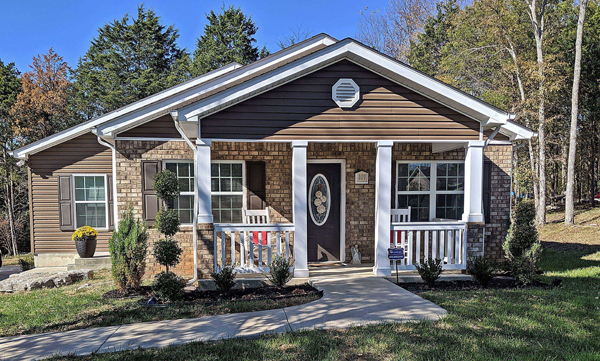
Rutherford County Area Habitat for Humanity has reached a new milestone in its thirtieth year.
The Habitat chapter is in the first phase of a four-phase project to build its first subdivision, a 77-home neighborhood called Legacy Pointe.
The project will provide land for homes for several years to come and create a community among Habitat homeowners, who build and learn together as they ultimately become neighbors.
RCHFH broke ground in April 2019 on 18 acres on Twin Oak Drive, near Halls Hill Pike and not far from the Murfreesboro rock quarry.
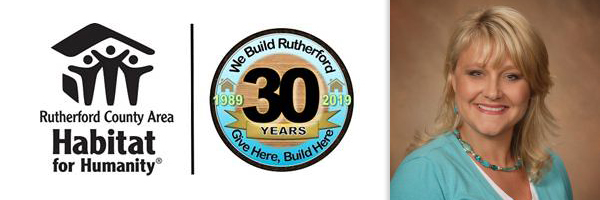
“What is unique about this community is it will be a mixed income, which means we will have people who are 40 to 80 percent of the median income living there,” said Terri Shultz, executive director of RCHFH. “This is a broader range of income of people than we typically serve because we want to get away from creating a pocket of poverty. We usually serve our low-income families. In this case, income ranges close to $25,000 to $60,000.”
This subdivision is annexed into the city. The homes will all be 1,200-square-foot minimum with paved driveways and one-car garages. There will be a homeowners association for the neighborhood.
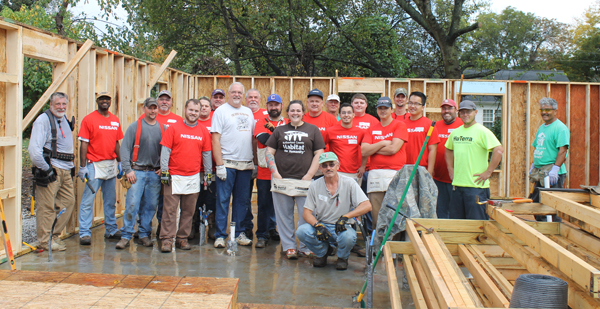
“It will include anything a person would want to see when they are buying a home on the open market,” Shultz said.
“We are very excited. For 30 years, we have been finding lots and revitalizing them. We have done small projects where we have taken an acre and subdivided it into four. This will be our first full fledged subdivision.”
RCHFH has joined with a hefty list of partners to provide the best affordable product to the community, she said.
These partners include the Tennessee Housing Development Agency, United States Department of Agriculture’s Rural Development, The City of Murfreesboro, Pinnacle Bank, Federal Home and Loan Bank of Cincinnati, Site Engineering Consultants (SEC), Inc. and Old South Properties.
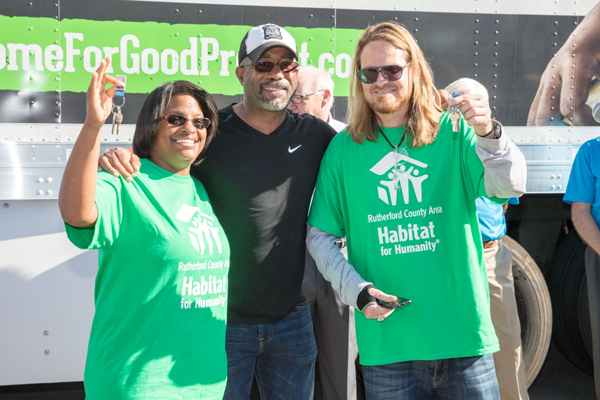
Habitat continues to search for more sponsors for the subdivision.
“Sponsors have committed to the first houses of the year, and we are looking for sponsors for more of the homes,” Shultz said. “This is unique and a wonderful opportunity to pull the whole community together to see multiple houses go up at once. We are super-excited to be able to see four families or five families—or however many we do at one time—become homeowners.”
Rutherford Habitat is trying to uplift the overall value of their community and keep it maintained enough that their families can still afford to live there. They have been struggling recently to find and to maintain a certain number of builds each year because properties have become more expensive.
Habitat development and marketing director Melissa Cross said they had been thinking about a subdivision for awhile and have been blessed to be able to continue to revitalize Murfreesboro.
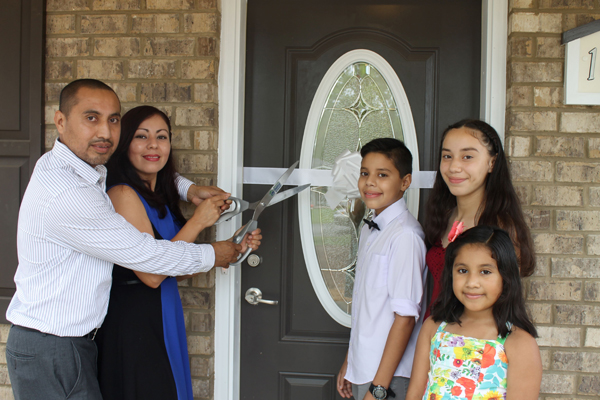
The Santiago family celebrates the ribbon cutting for their new habitat, pictured at top.
“In recent years though we are competing with people who are coming in and flipping homes and doing that professionally,” she said. “The lots we used to be able to buy, we can’t now because people are offering way more than we can afford. Some of the lots that we used to build on are going for $300,000 a property.”
With the Legacy Pointe project, RCHFH will be set for several years to come.
“No longer do we struggle to find out how long it is going to take us to find a property and how much it is going to cost,” Shultz said.
So far, eight families have been picked to live at Legacy Pointe, and more will be chosen this year. Anyone can qualify, including single occupants or families. There are several guidelines that applicants must meet to qualify and they must agree they will put in 200–400 hours of sweat equity and take 50 hours of free financial education.
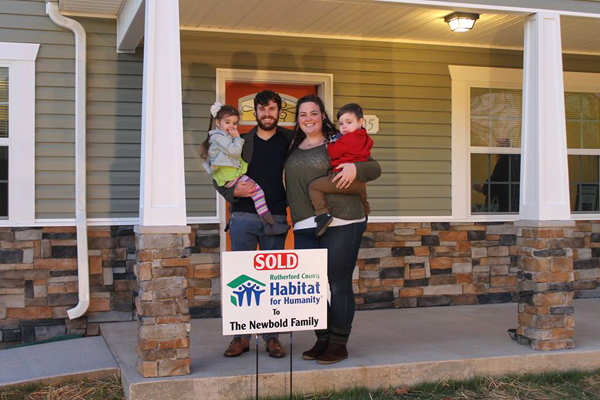
“Everyone knows Habitat for building houses,” said Cross. “But we also build strength, stability and self-reliance, so families are well prepared to move on in life.”
People in need of housing are usually in two scenarios, Shultz said. They are cost-burdened because they are paying more than 30 percent of their income on some sort of rent or they are making a payment to a deteriorating home. And, people sometimes live in poor situations because they make decisions with their limited income like “am I going to the doctor, am I paying my rent or am I buying food?”
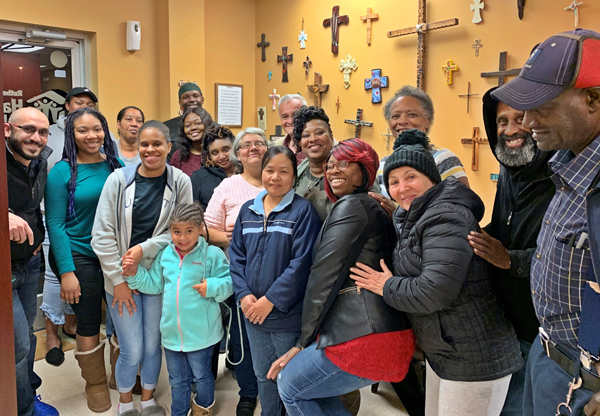
2019 Habitat Homeowners Class
Habitat’s financial classes not only cover budgeting, how to maintain your credit score and keeping your debt-to-income down, but they also talk about home maintenance, nutrition and insurance.
“We try to cover the full spectrum of what a person will need to be a homeowner, and sometimes that’s even talking about how to be a good neighbor,” Shultz said. “There are skills to that, and there is give and take to that.”
The future homeowners take these classes with people who will be their neighbors and, in that, create their own sense of community through the Habitat program.
___
Applications for home ownership will open soon. For more information about the Habitat Future Homeowner Program, visit rchfc.org or contact terri@rchfh.org.
___













